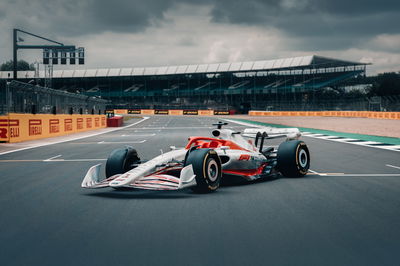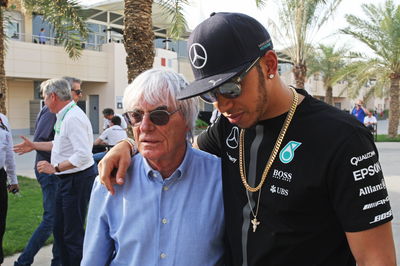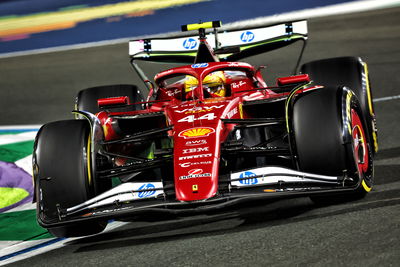F1 unveils full-scale 2022 car for biggest ever rules overhaul
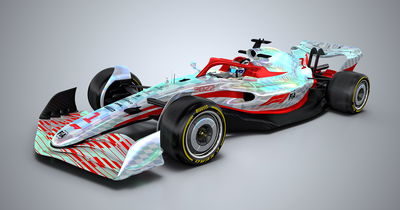
The world championship’s biggest ever rules overhaul was meant to come into effect for this season but the teams agreed to postpone the introduction of the new regulations until 2022 in response to the coronavirus pandemic.
On Thursday ahead of this weekend’s British Grand Prix at Silverstone, F1 showcased a life-sized version of what it has described as being “the most futuristic racing car of all time” for the first time during an event dubbed ‘F1 One Begins’.
F1 had previously presented a glimpse at the future regulations back in late 2019 when the rules were originally intended for 2021.
The all-new 2022 car will see F1 return to using ground-effect technology, with the concept specifically aimed at producing better racing and enabling chasing cars to follow more closely.
F1 hopes to achieve this by simplifying aerodynamic components including the front wing and endplate, as well as the introduction of a prescriptively shaped rear wing.
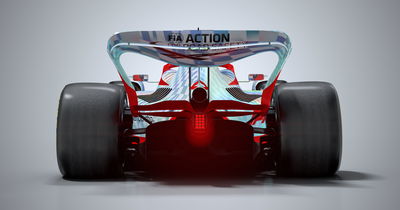
“It feels like a very long time ago the FIA officially unveiled the regulations for the future of the sport, but after the one-year delay due to the pandemic it’s only 170 days to go until the start of 2022 when we will see the next generation of Formula 1 cars take to the track," said F1 chief Ross Brawn.
“There is huge excitement ahead of this new era, and while 2021 has been a great battle we still have cars struggling to follow each other during the race. The regulations for 2022 will address this problem and create an opportunity for closer battles and more wheel-to-wheel racing.
"The combined effect of the new aerodynamic regulations and financial rules, in the form of the cost cap, will create the conditions for a more balanced championship and for the gaps across the grid to close.”
Other major changes that will form part of the 2022 rules revolution will see F1 switch to 18-inch wheel rims, the current 1.6-litre V6 hybrid turbo engine being frozen until the end of at least 2025 and tighter financial regulations.
F1 teams will have to adjust from the current $145m budget cap to $140m in 2022, before a further drop to $135m in 2023.
FIA single-seater technical director Nikolas Tombazis said: “2022 will herald a new era for the FIA Formula One World Championship, with the introduction of one of the biggest changes in regulations in the history of the sport.
"The FIA has led a superb collaborative effort with Formula 1 and the teams to identify the areas we feel will have the biggest impact on the ability of the cars to race each other closely on the track, and in combination with the Financial Regulations that are already in place, these new Technical Regulations should have a great positive impact on the spectacle but also on the sustainability of our Sport.”
